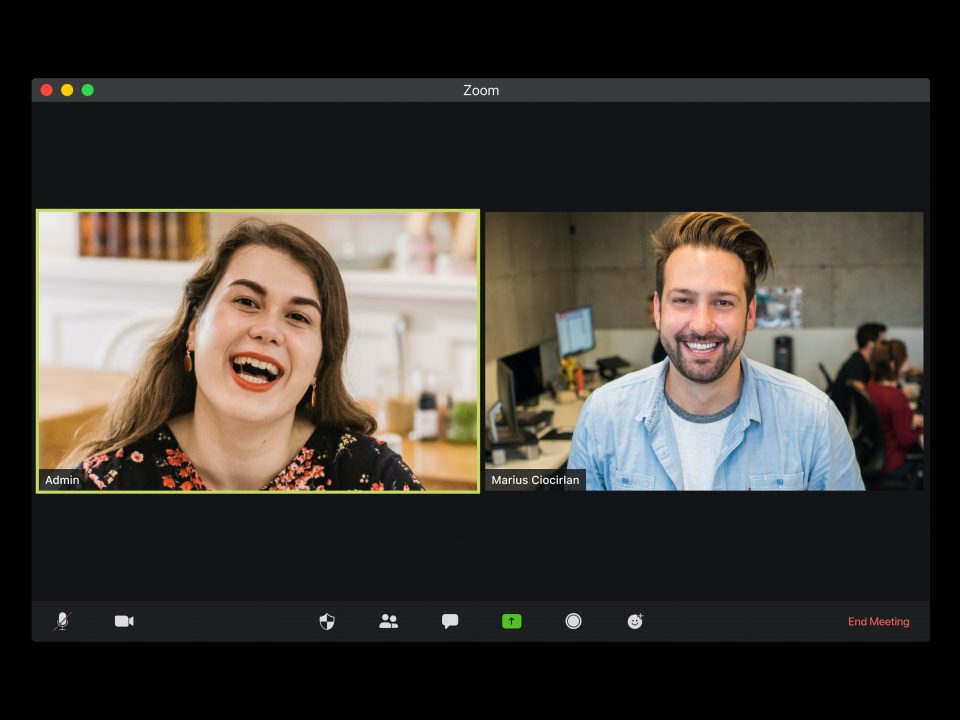- 2487 S Gilbert Rd Suite 299, Gilbert, AZ 85295
- (480) 680-9888
- hello@virtualfusions.com
14 Fun Virtual Team Building Event Ideas

Creative Virtual Event Ideas to Elevate Your Next Meeting or Event
March 1, 2021
Gamification at Virtual Hybrid Events | Virtual Games Ideas & Examples
March 5, 202114 Fun Virtual Team Building Event Ideas
As the 2020 COVID-19 pandemic rolled into a new year it marked the best part of nine months working from home for many employees. That was five weeks ago. The question for many organisations is: how can we keep morale high? Well, we think we can help these inspiring virtual team building event ideas.
Having spent such a long time apart, staff are understandably missing some key aspects of working face-to-face. According to a study commissioned by Raja Workplace, 2/3 of workers have missed the workplace itself during the ongoing crisis, and speaking to colleagues in-person is the biggest thing they crave.
Of course there’s a lot to be said for spending time with workmates in terms of social life and mental health, but as our connections with fellow team members become more distant, the intuitive way in which we collaborate on projects can suffer, as this is often built on regular conversations, not short and very specific queries sent via email or a messaging platform. Hence many managers believing productivity falls without regular in-person contact.
This means it’s more important than ever to work at making the remote workplace a cohesive whole, and a great way to oil the gears is by engaging staff with virtual corporate team building exercises.
The idea being to bring them together, make them practice collective problem-solving and break ice among those who perhaps don’t know one another very well, or have started to forget certain attributes their co-workers have.
Understanding this, we’ve wracked our brains, cast the net and hauled in no less than 14 virtual corporate team building exercises, from monster hunts to personal phone calls. All can be easily implemented without much hassle or organisation, and we guarantee each will build — or rebuild — rapport.
Our 14 fun corporate/team building event ideas are:
- Virtual icebreakers
- Virtual show & tell
- Mister Rogers calls
- Virtual art classes
- Who am I? Virtual game
- Online speed races
- World map
- Virtual what would you do?
- Guided meditations
- Virtual tiny campfire
- Yeti hunting
- Scavenger hunt
- Online team bingo
- Virtual who was I?
1. Virtual icebreakers
A year is a long time in any business, and even if you’ve not been hiring recently there’s every chance restructuring or role changes have taken place — and that means introductions might be on the cards. Icebreakers — questions that ask individuals to reveal things about themselves — are a sure fire way to help employees form pictures of each other.
2.Virtual show and tell
The great thing with show and tell as a virtual team building exercise is you can frame it super-professionally, or really quite informally. Each member of the group makes a presentation on a given subject, which could be anything from their role in the business or a film they particularly enjoy.
At the end, you might want to tack on some time for shared feedback, which will help the team with future presentations.
3. Mister Rogers calls
We have absolutely no idea who Mister Rogers is, was or could be. Nevertheless, we love this approach to virtual corporate team building exercises. First, draw up a list of everyone on the team/involved in the exercise. Divide into pairs.
These pairs call each other weekly for a set amount of time (30minutes is standard), to discuss a predetermined topic, which cannot be related to work. Depending on the number of people, switch the pairs up every two or three weeks and watch as bonds solidify and confidence grows.
4. Online art classes
It’s an oldie but a very, very goodie. Suited to icebreaking, confidence building and de-stressing, either pick an object, location or person and set the group a task of sketching their interpretation of this. For added twists, consider setting a specific school of art to mimic, for example abstract or expressionism.
Alternatively, ask everyone to draw another member of the team based on how they see that person, being sure to reiterate this is about complements and constructive criticism, not personal attacks.
5. Virtual Who Am I?
We’ve all played the Rizla celebrity guessing game. Well, this kind of flips that around. Taking it in turns, people pick an object, place or person they would like to be, keeping this secret from the rest of the group.
The others then ask specific questions to try and ascertain who or what the hidden thing is. The point here is that we are encouraged to listen to what our colleagues are saying.
6. Online speed races
A bit of hyper-competition never hurt anyone. Did it? While this may not be for everyone, speed racing can actually have a place in the office when implemented properly.
Think fastest and most accurate typist or first team past the post on a research task and you won’t go too far wrong. A game that really helps us show off our professional skills in a fun and often hilarious way.
7. World map
You could just as easily focus on counties of England, or capital cities. Sticking with the example of nations, though, as you may have guessed the idea is to mark on the map where every single sovereign state is without resorting to the map-proper.
A test of geographical knowledge and memory, to make it more business specific why not ask for all the company’s office sites or departments?
8. Virtual what would you do?
This does take a little more prep, but here are some great ‘what would you do’ scenarios used in interviews if you’re struggling. Put simply, the group reads through a particular scenario and is asked what to do in response.
After some time to consider, answers are shared and feedback given. You can play in teams, pairs or individually, with answers offering an insight into the best lateral thinkers, innovators and mavericks on the payroll.
9. Guided meditation
Guided meditation doesn’t really seek to answer any specific questions or offer insight into who’s good at what, and why. Instead, this is about bringing people closer together for a shared calming and channelling experience, helping staff improve their focus and attention span in all aspects of life, not just the workplace.
Hiring a professional to lead will be necessary, but well worth it.
10. Virtual tiny campfire
Particularly popular in the US, this virtual team building exercise is inspired by company retreats, and specifically the evenings therein. Again, there is some preparation needed — it’s nice to send everyone involved a pack of supplies in advance, perhaps a packet of marshmallows, chocolate, matches and a tealight.
Participants then log in to a secure video conference for a set amount of time to share anecdotes, ghost stories, trivia or whatever they might choose, around the campfire.
11. Virtual yeti hunting
Dividing staff into teams, a hunt leader offers out clues participants must follow in order to uncover the location of a famous mythical creature — for example, the yeti.
The breadcrumbs will be online, and research based, so this is all about the delivery; the more creatively each signpost is sent and received the more fun and engaging the experience become
12. Scavenger hunt
We can hunt yetis online, but for a proper scavenger hunt it’s a much better idea to move into the real world. A taskmaster reads out a series of demands for objects, all of which are open to some interpretation. Everyone in the game has two minutes to scour their surrounds and come back with something they think will meet the requirements.
13. Online team bingo
One of the most obvious choices because pretty much everyone can pick up a bingo card and immediately start playing. Universal, you might say. Just in case, though, the game involves numbers being randomly picked out of a hat/wheel/other vessel, while players try and tick off numbers from a randomly generated list of their own.
First to tick all their numbers off wins, we like to think the real winners here are the employees who get to play tailored versions of this with themed rounds, prizes and silly side-games relating to the business.
14. Virtual who was I?
Embarrassing but also often very heart-warming and unifying, this could be a round within a longer team building game or a shorter standalone exercise. Everyone sends in a picture of themselves as a baby.
The submissions are collated, placed in a random order, and then shown to everyone taking part, who must then guess who on the team is in each photograph.
Need more event management tips and advice? Take a read of some related articles below:
via 14 Fun Virtual Team Building Event Ideas




